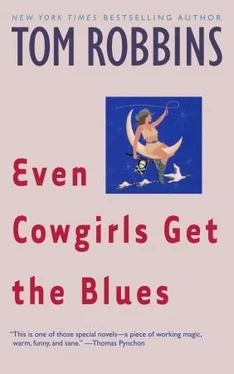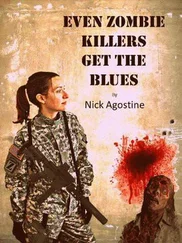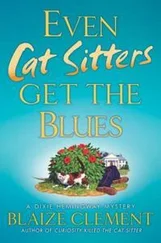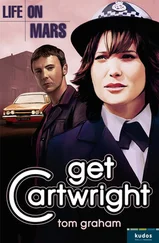“It isn't? Are you sure?”
“Nonsense, if you'll let me speak, Robbins, is of no help to anyone except as it might manifest itself in a neurotic fixation upon which one's stability depends.”
“Stability, schmability.”
“Centering her life on her handicap rather than overcoming that handicap; building, if you will, a mystique around that handicap might seem a poetic undertaking to Mrs. Gitche. It might even seem such to you, God forbid. But I am not convinced, nor is Mr. Gitche, who cares for her most and knows her best. Mr. Gitche. .”
“Mr. Gitche is a flaming asshole.”
“Hardly a professional evaluation, Robbins.”
“Oh no? I thought you Freudians were really big on assholes. I recall entire lectures devoted to anal expulsion, anal retention. .”
“Don't be cute. We haven't got all day.” Dr. Goldman glanced at his office clock the way an insecure husband glances at his flirtatious wife at a party. The clock went right on batting its big eye at eternity. “To return to the point, Mr. Gitche contends, with apparent justification, that his wife is immature. .”
“Growing up is a trap,” snapped Dr. Robbins. “When they tell you to shut up, they mean stop talking. When they tell you to grow up, they mean stop growing. Reach a nice level plateau and settle there, predictable and unchanging, no longer a threat. If Sissy is immature, it means she's still growing; if she's still growing, it means she's still alive. Alive in a dying culture.”
Dr. Goldman stirred a half-amused little chuckle into his snort, much as a splash of red Burgundy might be stirred into a pot of lard. “We could have an interesting argument about that sometime,” he said. “For the present, however, let's appreciate Mr. Gitche's viewpoint. Mr. Gitche told me once that what bothered him the most about his wife's devotion to hitchhiking was its obviousness. She was afflicted with enlarged thumbs, ergo she hitchhiked. Now, had she decided, instead, to become a fine seamstress or to excel at tennis or to take up painting. .”
Speaking of painting, there was a Julian Gitche watercolor on the wall above Dr. Goldman's desk. It was a landscape, a Central Park scene, rather free and airy, like a hose spray of green Easter-egg dye in which some sprite or minor deity was taking a bath. One wondered what would happen to the artist's protoromantic style were he to set up his easel in the Dakota hills. And one suspects that the experience of the Dakotas is too strong for any established aesthetics to withstand. At any rate, the painting quivered a bit on its hanger when Dr. Robbins boomed:
“There you go again! Transcendence! Wishing her to deny her thumbs by compensating for their limitations instead of affirming them by exploiting their strengths. Jesus!”
“But hitchhiking , Robbins. What kind of affirmative activity is that? Mrs. Gitche wasn't even interested in travel. It seems to me that fairly early in life she seized upon hitchhiking as a means of coping with an understandable anxiety, and that what began as an ill-chosen defense mechanism gradually evolved into a pointless and somewhat grotesque obsession. Hitchhiking , of all things. .”
Dr. Robbins grasped his mustache, as if to prevent it from turning and leaving the room without him. There is a point where even hair can become exasperated. “Hitchhiking, schmitchhiking. Don't you see that it doesn't matter what activity Sissy chose? It doesn't matter what activity anyone chooses. If you take any activity, any art, any discipline, any skill, take it and push it as far as it will go, push it beyond where it has ever been before, push it to the wildest edge of edges, then you force it into the realm of magic. And it doesn't matter what it is that you select, because when it has been pushed far enough it contains everything else. I'm not talking about specialization. To specialize is to brush one tooth. When a person specializes he channels all of his energies through one narrow conduit; he knows one thing extremely well and is ignorant of almost everything else. That's not it. That's tame and insular and severely limiting. I'm talking about taking one thing, however trivial and mundane, to such extremes that you illuminate its relationship to all other things, and then taking it a little bit further — to that point of cosmic impact where it becomes all other things.”
A flicker of comprehension lit up Dr. Goldman's heavy orbs the way a flash of heat lightning might light up the nocturnal droppings of a well-fed mule. “I see,” he said. “You're referring to Gestalt — or to some far-fetched interpretation of Gestalt. Are we leading into a confrontation between Freudian and Gestalt psychology?”
“Gestalt schmagalt,” growled Dr. Robbins. “What I'm referring to is magic.”
Dr. Goldman shook his head wearily, even sadly. After a while he said, “In your rather abbreviated report" — he held up a single page of paper against which some rude sentences had been smacked as if slapped there by the nasty tail of a barnyard animal—"You recommend only that Mrs. Gitche be discharged and that she be encouraged to divorce her husband. Surely you're aware that there is no way in which we can therapeutically, ethically or legally encourage a patient to divorce her mate. Our business is preserving marriages, not ending them. .”
“Our business should be liberating the human spirit. Or if that's too idealistic for you, if that strikes you as the business of religion — which it should be, too — then our business should be assisting people to function — crazily or not isn't our concern; that's up to them — helping them to function on whatever level or levels of 'sanity' they choose to function on, not helping them to adjust and locking them up if they don't adjust.”
Past the point of snorting, Dr. Goldman removed his horn-rimmed glasses, rubbed his eyes and said evenly, “Dr. Robbins, our fundamental differences are greater than I had imagined. I'll have Miss Waterworth schedule a conference for us next week and we can give them an airing and decide if they can be reconciled. For the present, however, my concern is for the patient. Encouraging her to divorce is, of course, out of the question. Mr. Gitche is a talented, educated sympathetic man who loves his wife a great deal. Mr. Gitche. .”
“Mr. Gitche has pulled his wife away from the edge and into the center. In here with the rest of us. I don't mind the center. It's big and mysterious and ambiguous — perhaps as exhilarating in its soft, shifting complexity as the edge is exhilarating in its hard, stark terminations. But the center can be a harmful place for one who has lived so long on the edge. Normality has been a colossal challenge for Sissy and I think she's met the challenge bravely and well. However, normality is a neurosis. Normality is the Great Neurosis of civilization. It's rare to discover someone who hasn't been infected, to greater or lesser degree, by that neurosis. Sissy hasn't. Yet. If she continues to be exposed, she'll eventually succumb. I think that would be a tragedy akin to sawing the horn off the last unicorn. For our sake as much as for her own, I believe Sissy should be protected from normality. Freed from the center and left to return to the edge. Out there, she's valuable. In here, she's just another disturbing noise in the zoo. Julian Gitche may be, as you say, kind and sympathetic, but he's a threat to Sissy, nonetheless. He's seduced her into a situation that is the mirror-opposite of what she believes it to be. Julian is driven by material ambitions; narrow, insatiable, intense, systematic, egocentric. In other words, he's a settler. Broad-based, timeless and dreamful, Sissy is the Indian . You're aware, Doctor, of the destruction met by the Indian when the settler lands on his shores.”
Читать дальше












